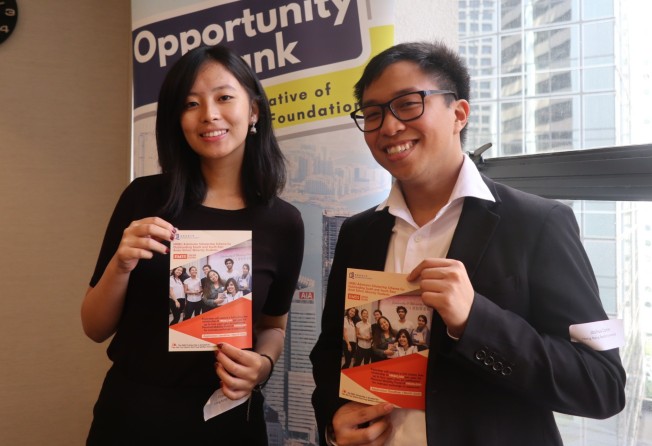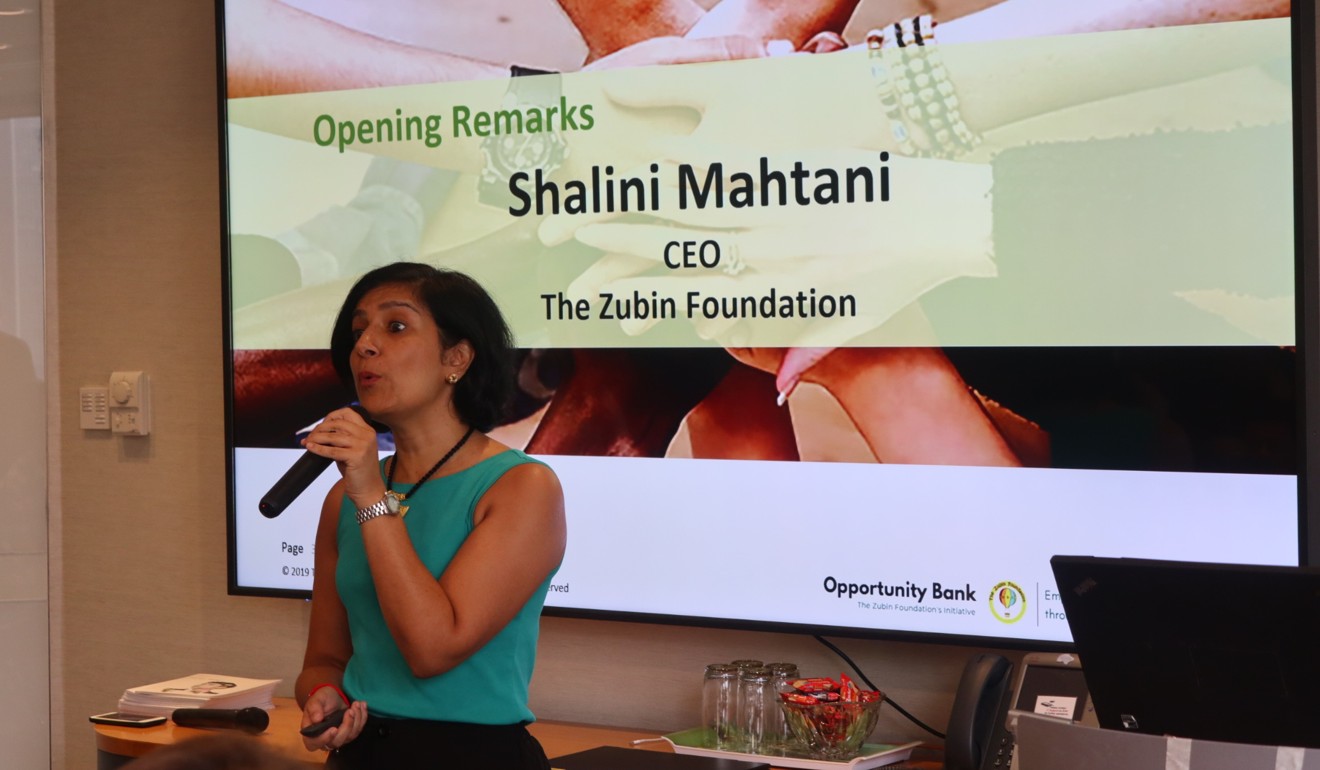Scholarship fair shows ethnic-minority students where to get help, keep degree dream alive
- Zubin Foundation holds event to keep minority students on track to university
- Scholarship recipients raise awareness of where the help is, and how to get it

Many ethnic-minority students do not go to university because they cannot afford the fees and are unaware that help is available.
To change that, the Zubin Foundation, a non-profit think tank on social policy, organised a scholarship fair on November 9 at law firm Linklaters’ office in Central, to encourage them to hold on to the dream of getting a degree.
Nearly 100 ethnic-minority students and parents attended the event, where 13 tertiary institutions and non-profit organisations set up booths to explain university application procedures and the financial assistance available.
Shalini Mahtani, the think tank’s founder and chief executive, said education offers the hope of upward social mobility and scholarships can make a difference to people from ethnic minorities.
“Many ethnic-minority youths would love to study beyond the HKDSE but simply cannot do so because of poverty,” she said, referring to the Hong Kong Diploma of Secondary Education, the main public exam for entrance to university.
She said financial constraints also affect minority students who do get into university, because they cannot afford to go on overseas exchange trips or join some student clubs.
A former banker, Mahtani is the great-granddaughter of George Harilela, from the clan that is involved in everything from trading to hotels and is active in philanthropy. The foundation is named after her late son.
There are about 260,000 people from ethnic minorities in Hong Kong, excluding domestic workers, and they make up 3.6 per cent of the city’s population of 7.5 million.
They include Indians, Pakistanis, Nepalis, Filipinos, Indonesians and Sri Lankans. South Asians make up just over 30 per cent of the ethnic-minority population, according to the latest Poverty Situation Report on Ethnic Minorities conducted by the government in 2016.
Only about 10 per cent of those from ethnic minorities aged between 18 and 22 received a full-time university degree education, compared with 23 per cent of local Chinese.
Among those at the scholarship fair was Hong Kong-born Ada Harry, 18, a Nigerian Form Six student from Delia Memorial School (Glee Path) in Lai Chi Kok.
She said it helped to learn about the funding available as it would ease the financial burden of education costs on her parents. Harry, whose father is an interpreter and whose mother works in a restaurant, hopes to study English or business at university.
The scholarship helped me convince my mum to let me pursue my studies in Hong Kong rather than sending me back to the Philippines
Layma Ali, an 18-year-old Pakistani in Form Six at Caritas Tuen Mun Marden Foundation Secondary School, said the fair helped her understand the university application process and the Chinese language requirements.
Joshua Cortes, 21, who moved to Hong Kong from the Philippines 11 years ago, and is a business administration student at Baptist University, was at the fair to share his experience.
He received a scholarship for ethnic-minority students at Baptist University, covering a year’s tuition of HK$42,100 and a HK$10,000 allowance for an overseas exchange.
He said about 30 ethnic-minority students apply for five scholarships each year.
“The scholarship helped me convince my mum to let me pursue my studies in Hong Kong rather than sending me back to the Philippines,” he said.

Asra Sainju, a 17-year-old Nepali student, went to the fair with her parents.
“We knew that scholarships are available but now we can actually see how people got them,” said Sainju, inspired by hearing the experience of scholarship recipients.
Filipino Eleonor Breis, who is in her 40s and has lived in Hong Kong for nearly two decades, went to the fair after her 11-year-old daughter told her about it.
She said it was good to learn about the university application process, so she could plan for her children.
Raymond Ho Wing-keung, senior officer at the ethnic minorities unit of the Equal Opportunities Commission, said there had been no indication of discrimination preventing non-Chinese students from going to university, but it could be that ethnic-minority parents are less aware of available funding schemes than local Chinese parents.
All universities have scholarship and financial assistance schemes available to all students, and new students are told about these during their orientation, Ho said.
He added that schools, non-profit organisations and support centres could do more to inform ethnic-minority parents about the help available.
The government’s Student Finance Office, under the Working Family and Student Finance Assistance Agency, also provides a variety of student loans, subsidies and assistance.
“These are available to all students, regardless of race,” Ho added.